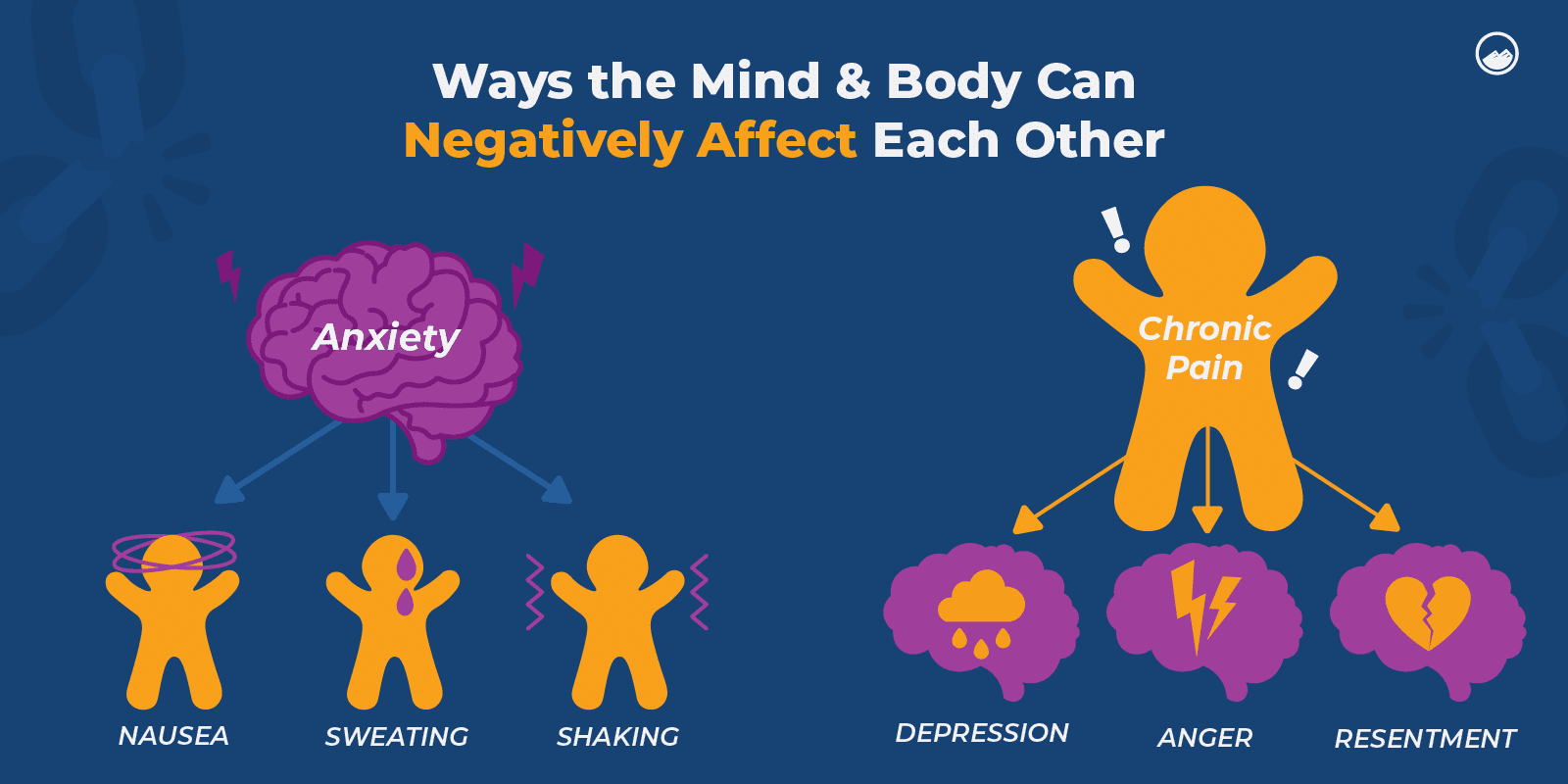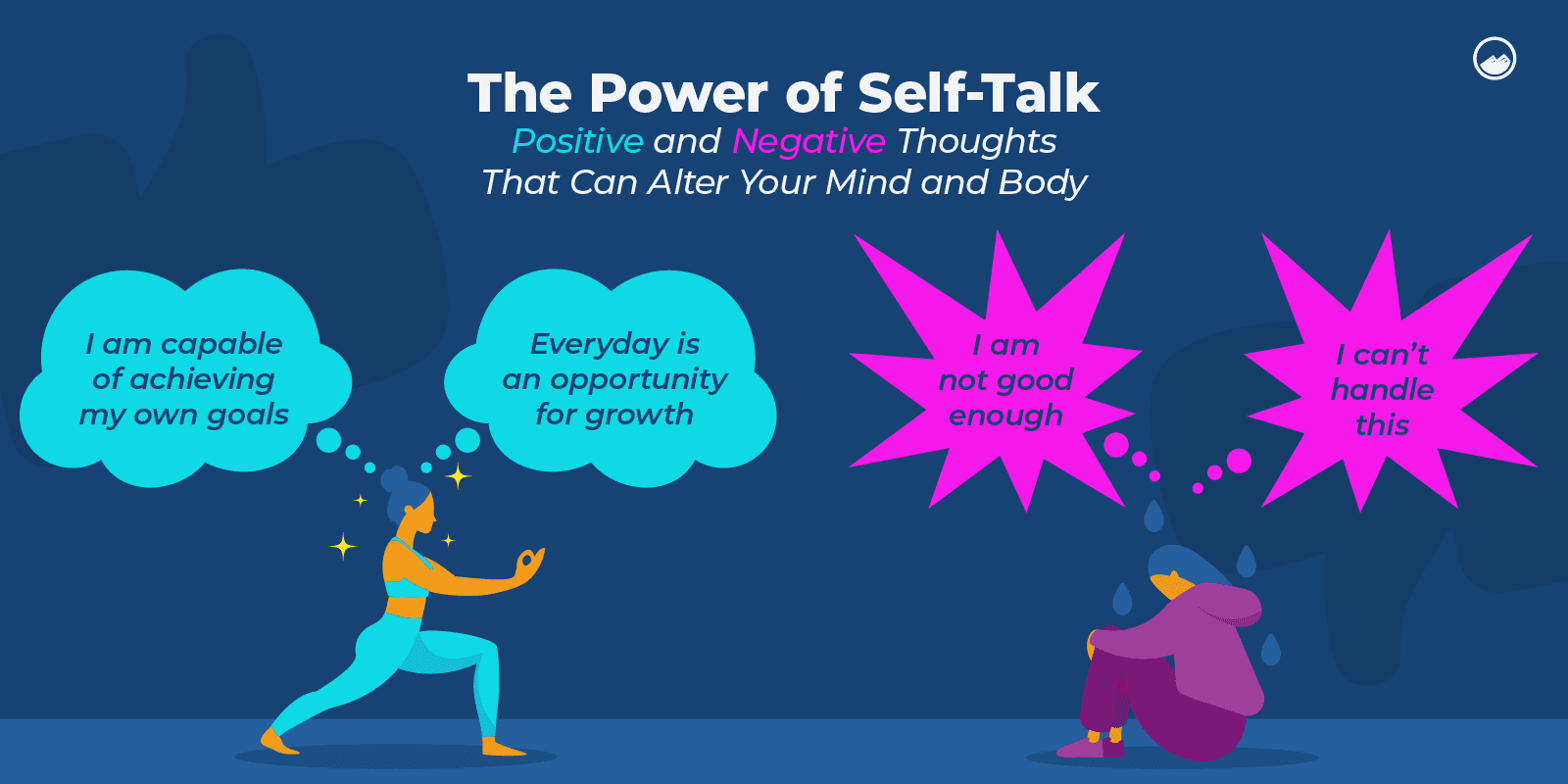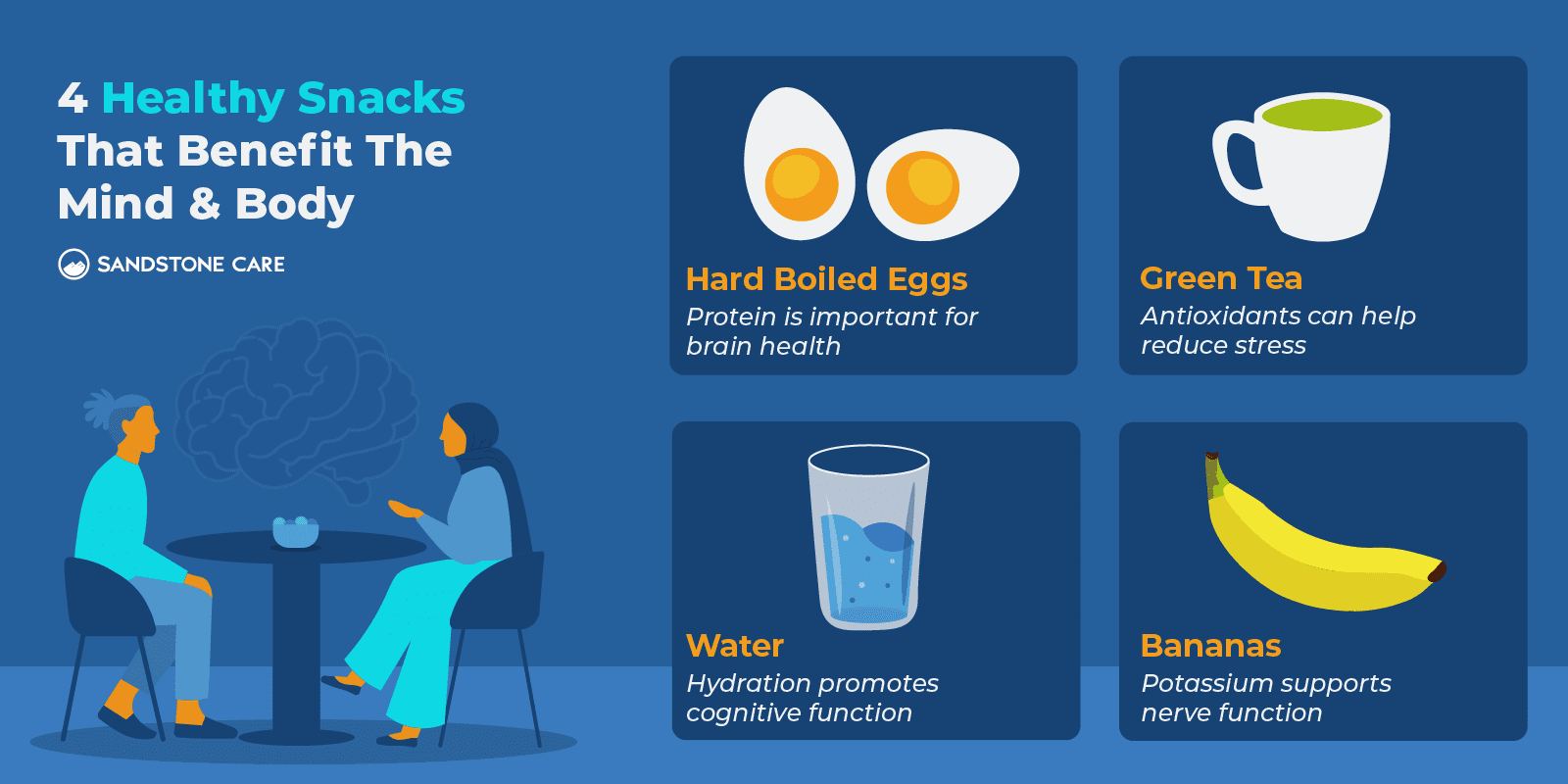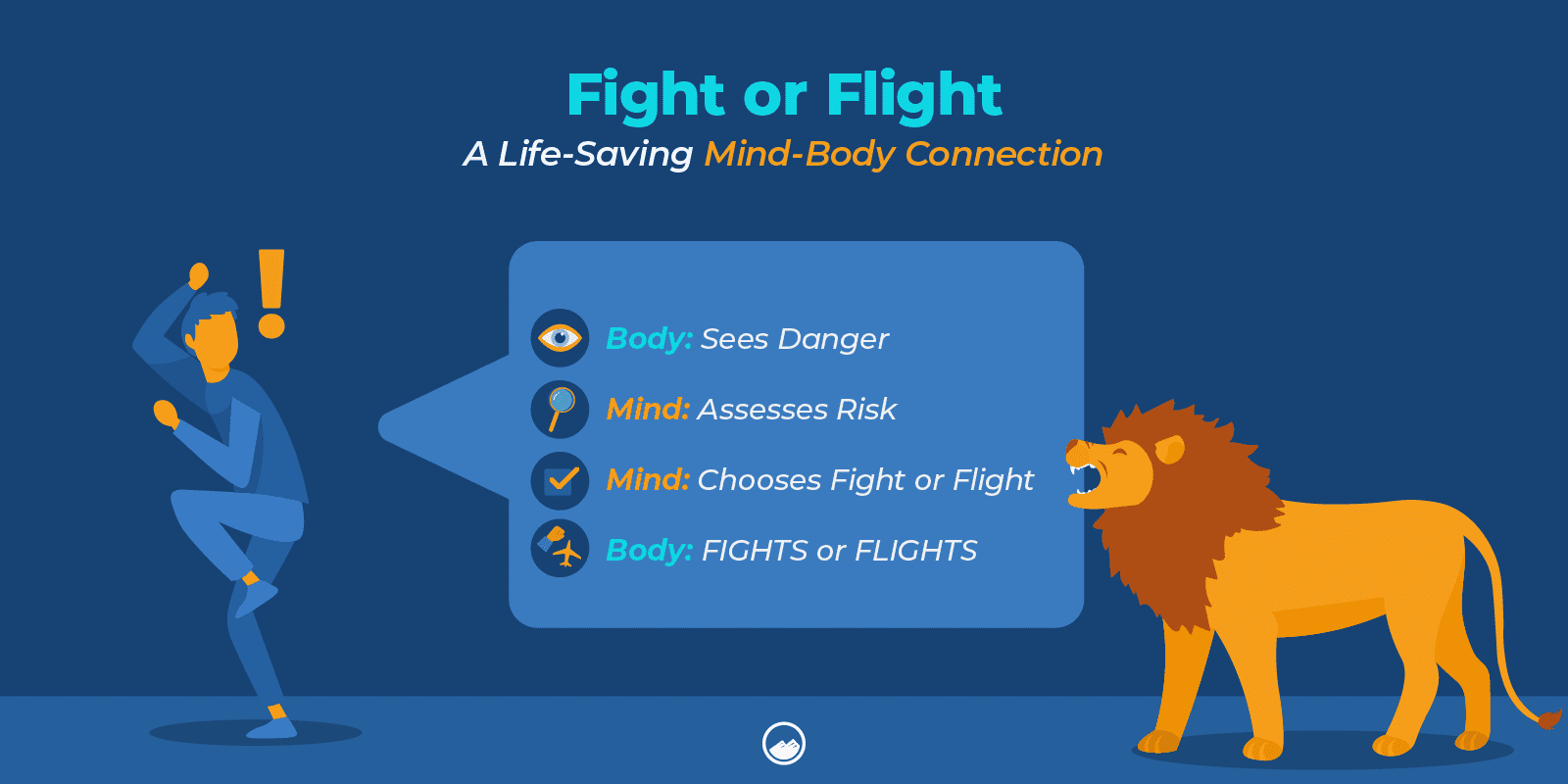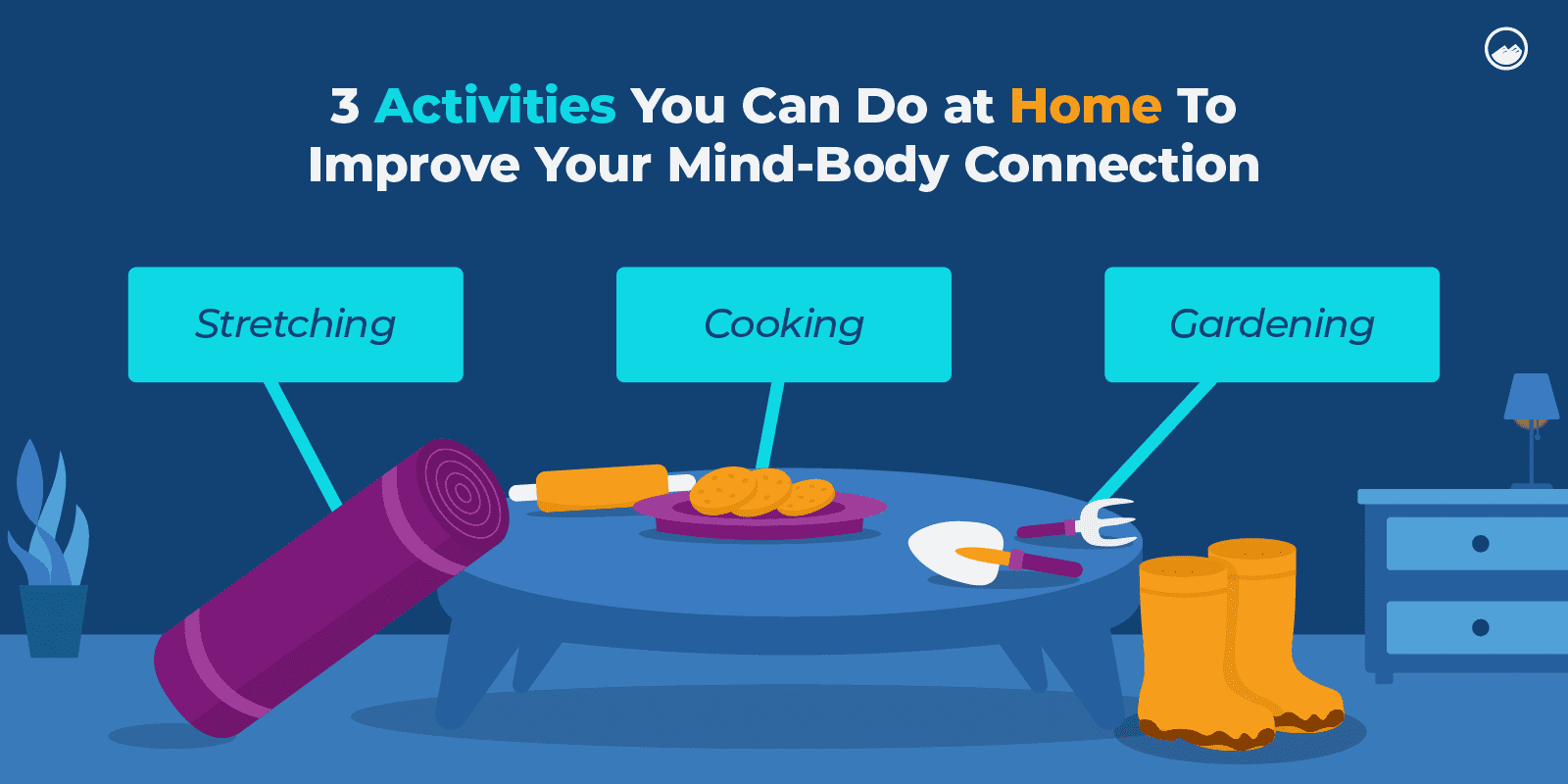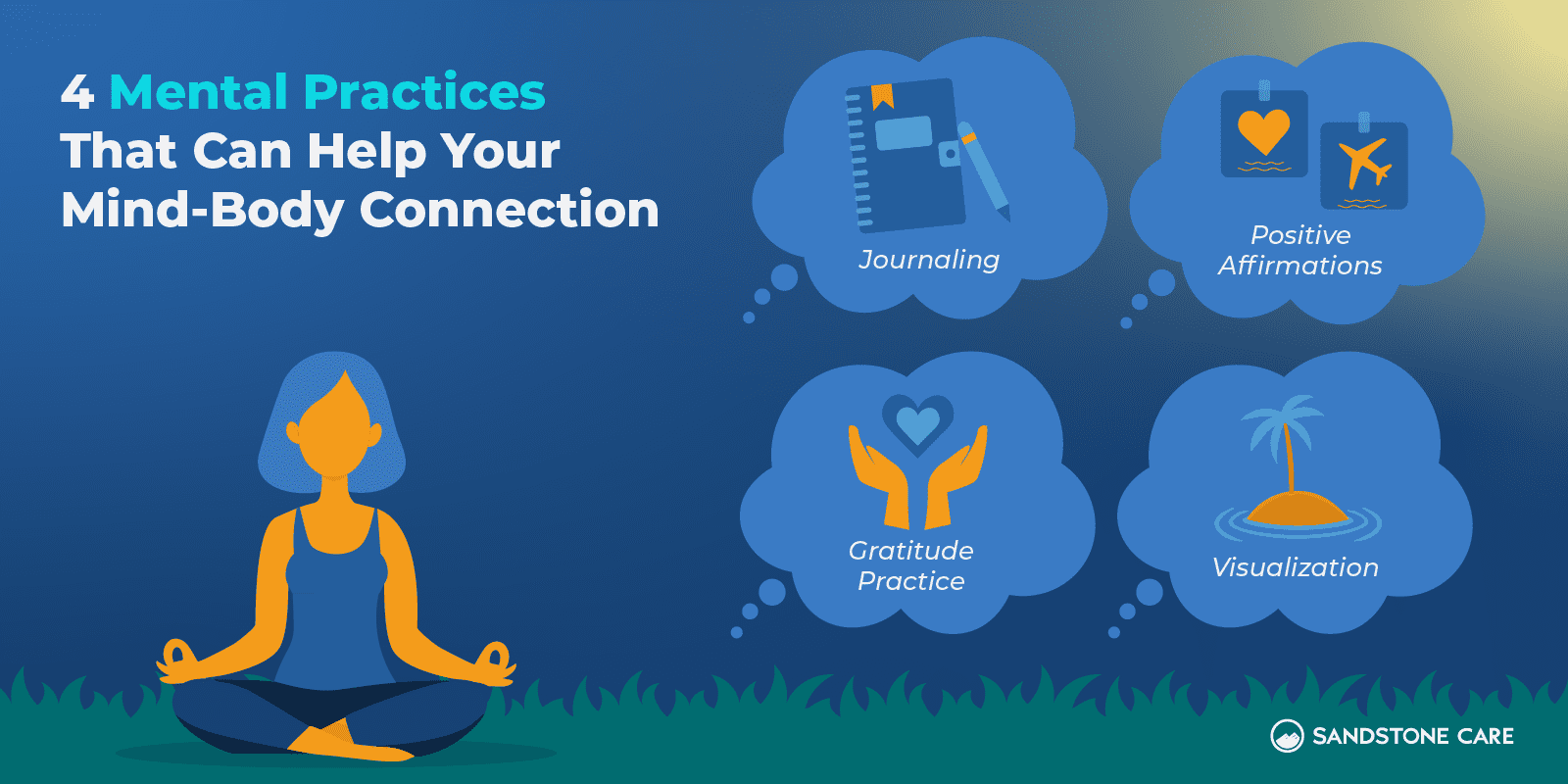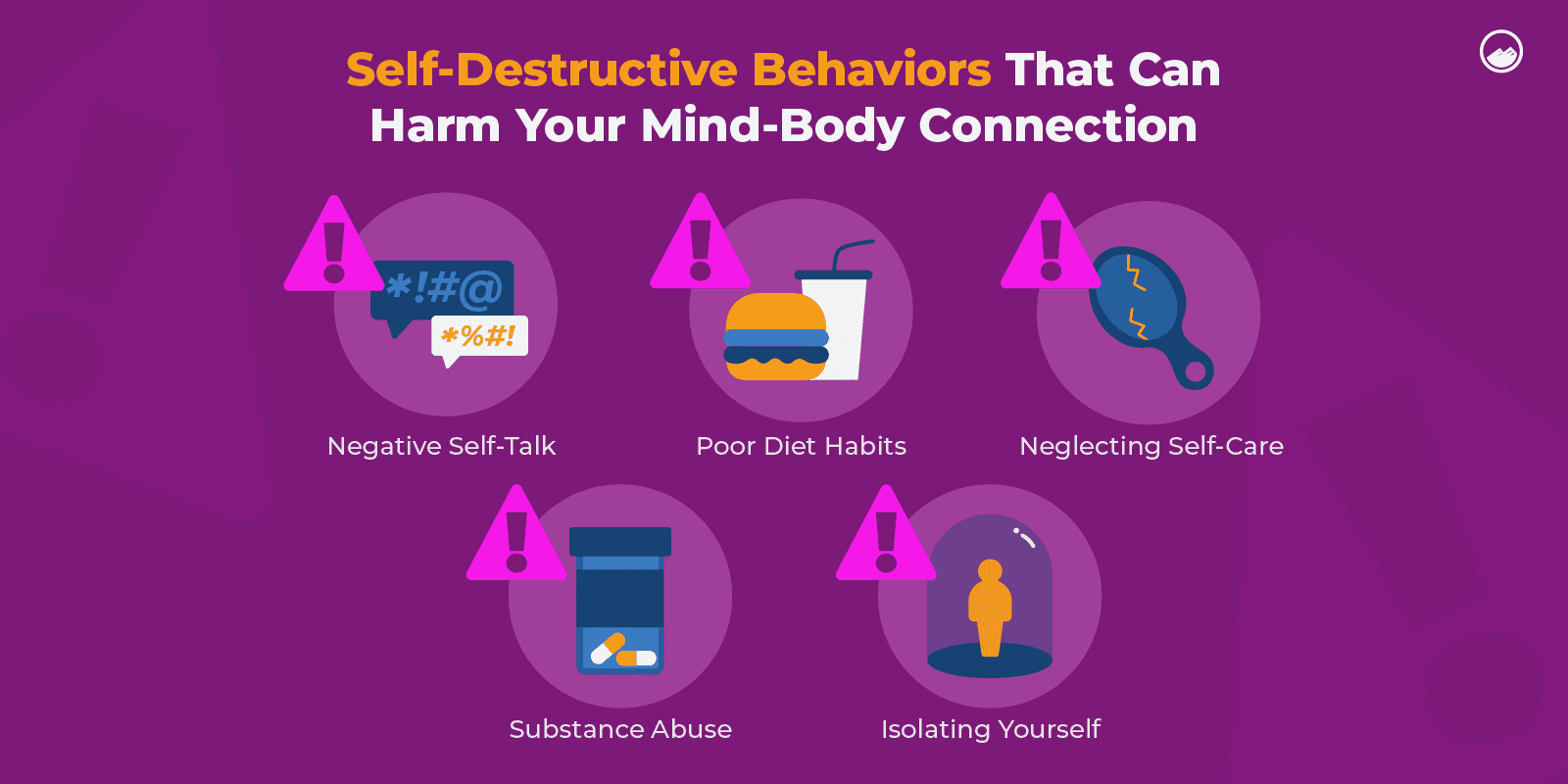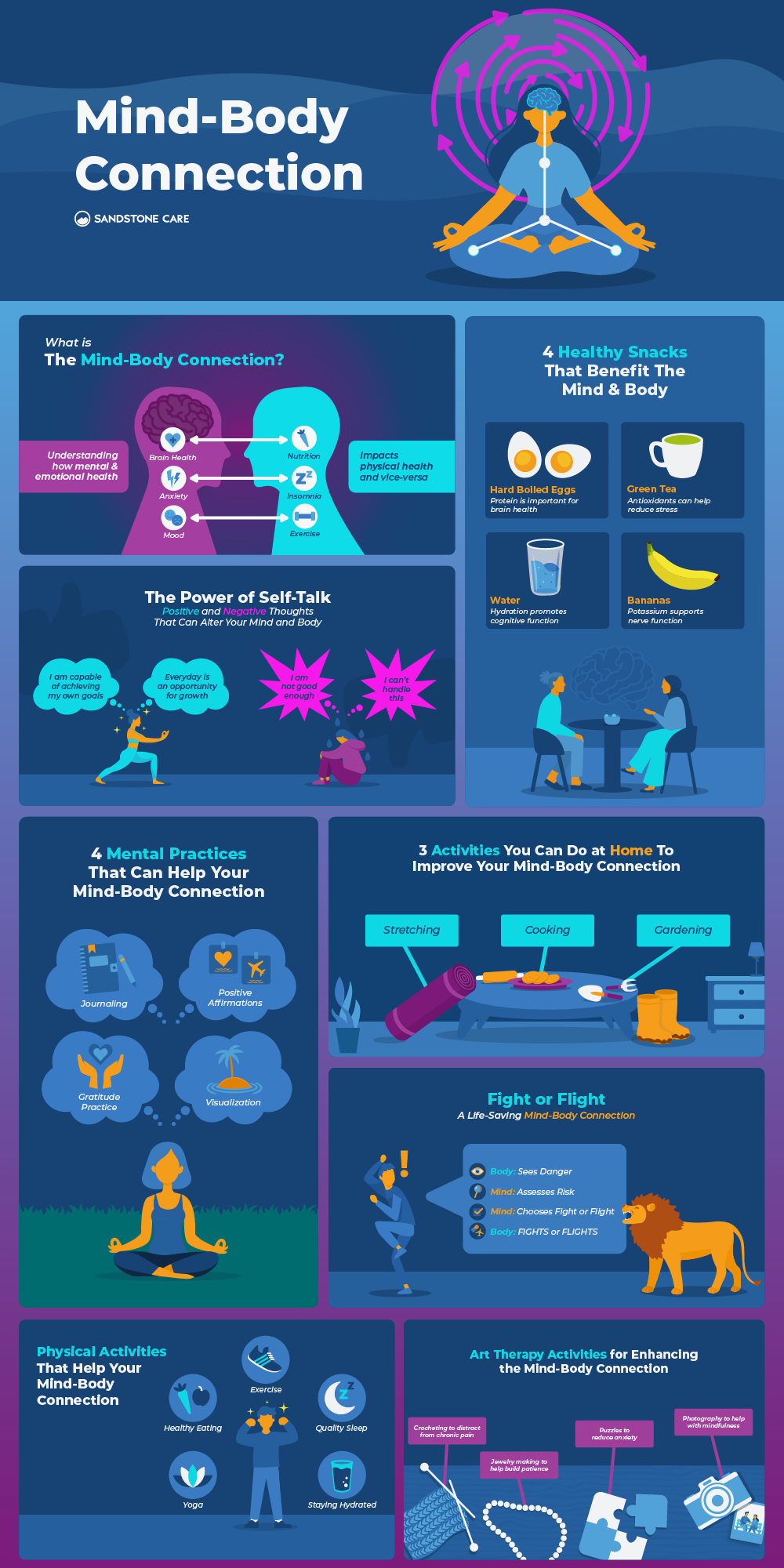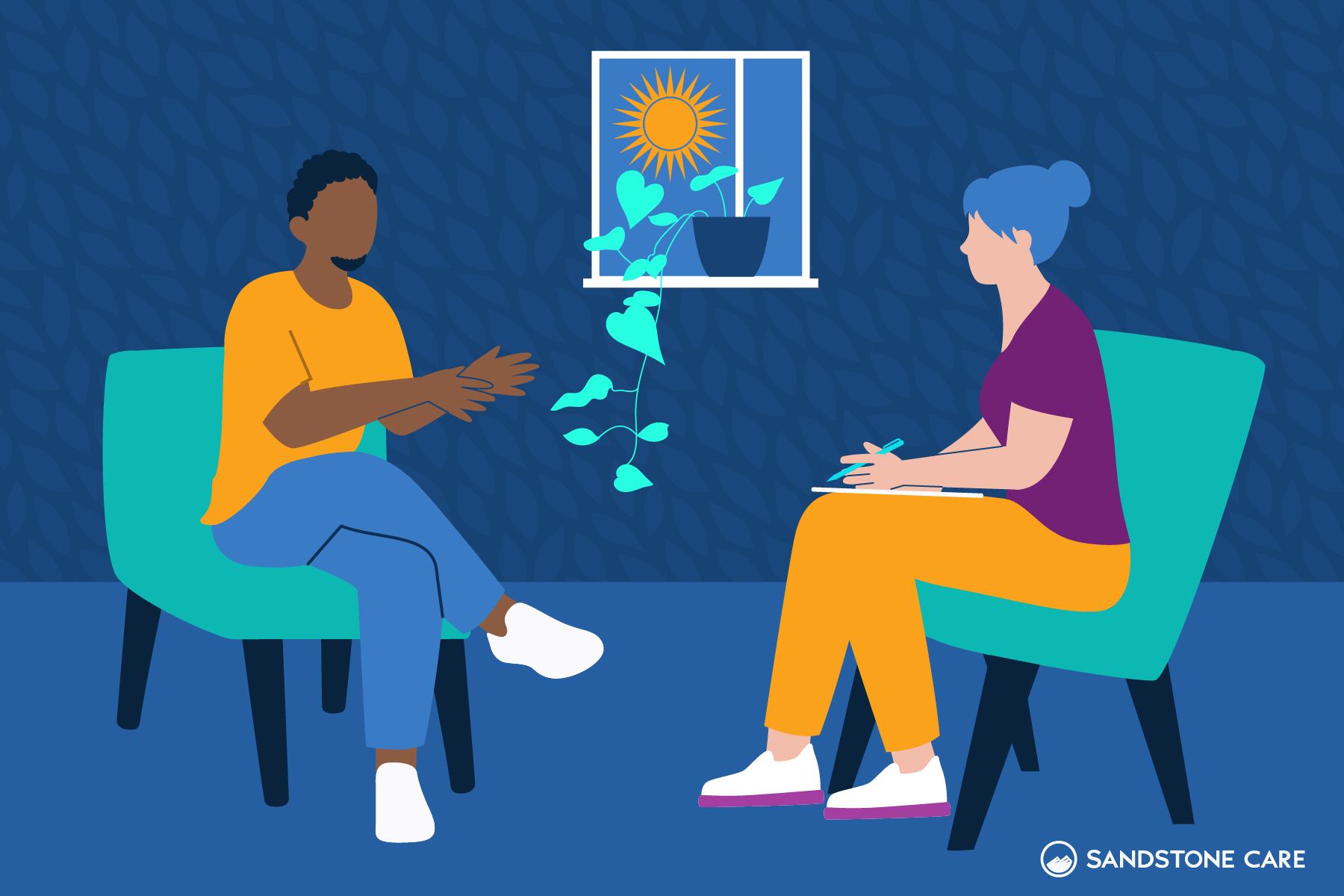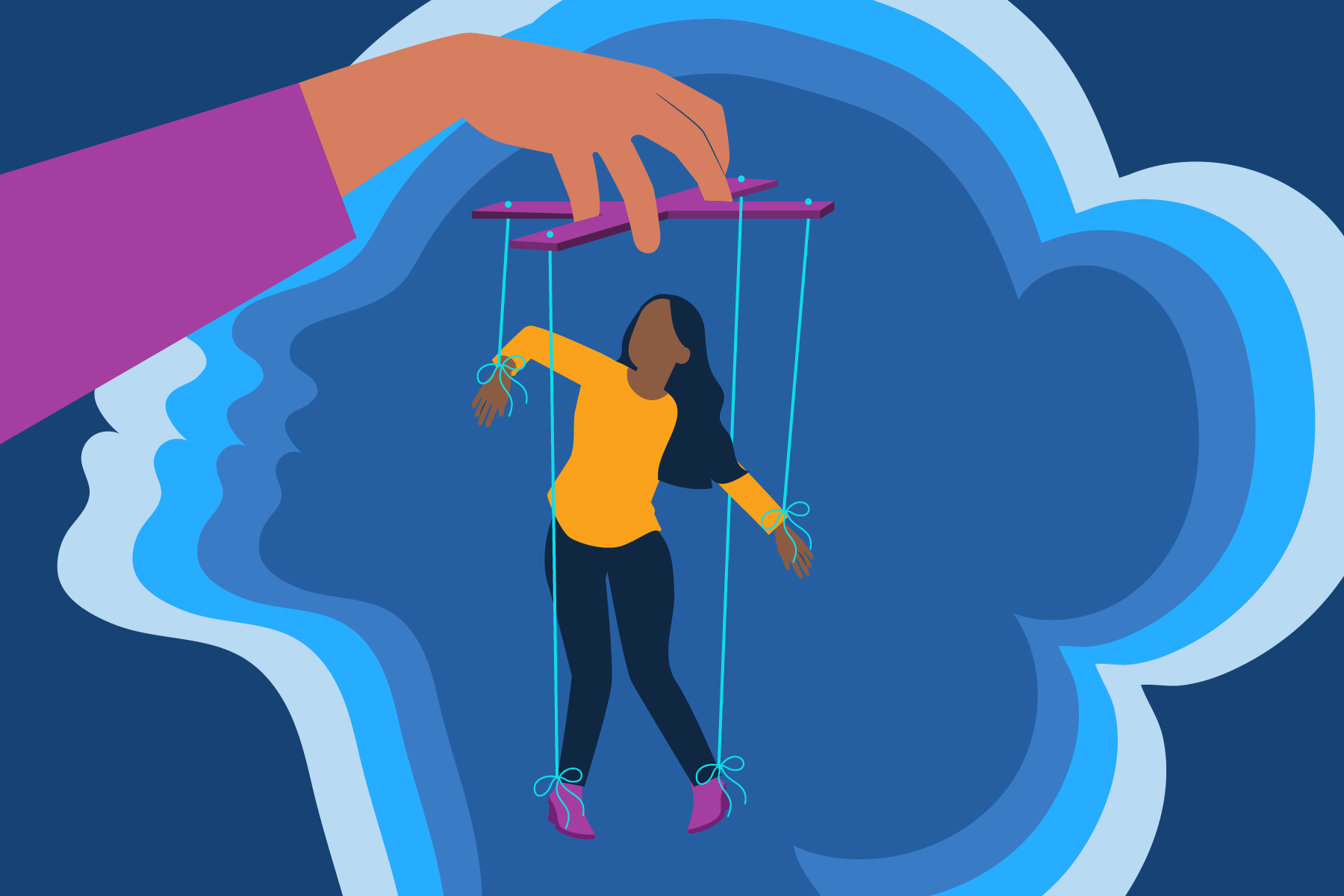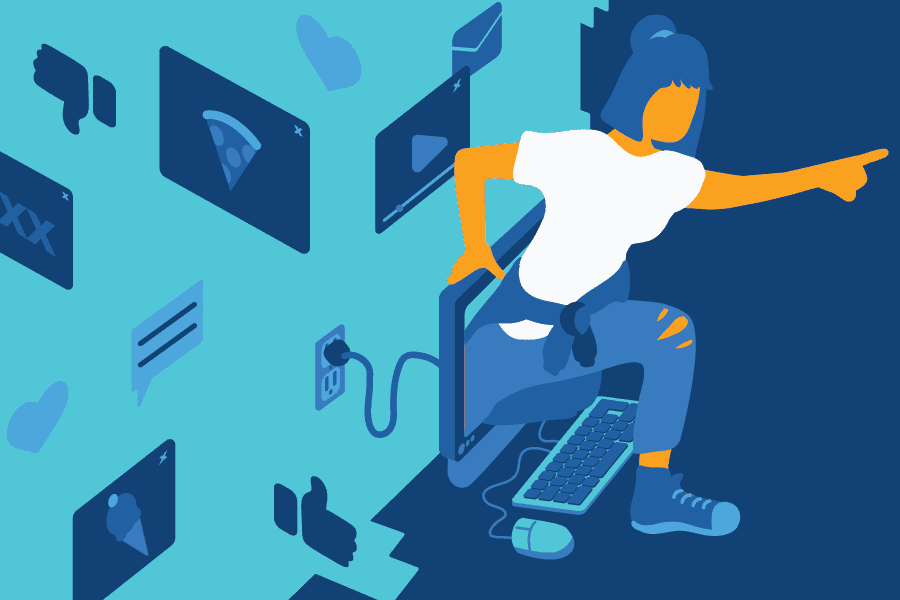Mind-Body Connection Overview
What Is the Mind-Body Connection?
The mind-body connection is the relationship between a person’s physical and emotional well-being. It explores how a person’s mental and emotional health affects their physical bodies and vice-versa.
Exploring the mind-body connection is crucial for effective healing.
Understanding the interconnected nature of the nervous system and mental health in addiction recovery can help develop new strategies that address one’s overall health.
Why Is the Mind-Body Connection Important?
The mind-body connection is essential for understanding the human body, as well as finding the best healthcare interventions to treat it.
Addiction affects the mind and body equally. An individual can become physically addicted to a substance as the body begins to expect its use for daily functioning.
However, the root of one’s substance use may stem from an emotional need. Such needs may suppress the effects of mental health disorders or trauma.
Understanding this connection can empower those in recovery to explore holistic healing options. Sandstone Care can help each person in recovery engage in comprehensive physical, emotional, mental, and spiritual healing.
We aim to help individuals and their families develop effective mind-body coping strategies and relapse-prevention skills.
What Are the Social Benefits of Mind-Body Healing?
Engaging in effective mind-body healing can directly affect a person’s social well-being by helping them to understand their emotional responses, giving them more energy to spend time with their loved ones, and much more.
Is the Mind-Body Connection Really a Scientific Concept?
Yes. Many studies have proven the connection between a person’s thoughts and emotions and physical health.
Effective cognitive-behavioral therapy is a great example of how the mind-body connection has been used to create effective treatment for those who are struggling with mental health issues and addiction.
Cognitive behavioral therapy focuses on understanding thought patterns and closely-held beliefs in order to uncover issues that are affecting the daily life of the patient.
What Are the Problems with Mind-Body Connection?
Some of the problems with the mind-body connection concept is that some say it isn’t specific enough and that it could unintentionally cause people to delay seeking physical care when it is needed.
The difficulties and problems that occur because of the mind-body connection usually stem from the fact that it is very difficult to treat both the body and the mind effectively and quickly.
The mind and body are intimately connected. Engaging in comprehensive treatment is necessary for holistic healing. However, the mind and body can also negatively affect each other.
For example, feelings of anxiety or depression can bring nausea, vomiting, increased heart rate, high blood pressure, shaking, and more.
Likewise, chronic pain can bring feelings of resentment, anger, frustration, and more. Treating the whole self is necessary for genuinely transformative healing at Sandstone Care.
What Is the Technical Term For the Mind-Body Connection Concept?
The technical term for exploring the mind-body connection is “psychophysiology.”
This scientific field explores the connection between psychological needs and their effects on bodily functions and processes.
How the Body Affects the Mind
Body and mind are closely connected, and physical challenges can affect a person’s mental health.
The effects of addiction on the body and mind also inform other unique challenges, making treatment necessary for effective healing.
How Does the Mind-Body Connection Work?
The mind-body connection is the idea that a person’s physical and emotional health profoundly affect each other.
Each person’s thoughts, beliefs, stresses, and more can all have ramifications on a person’s physical health through different brain areas.
For example, mindfulness practices like gratitude can cause an increase of “happy chemicals” in the brain such as serotonin and dopamine.
However, the mind-body connection can also have negative impacts. For example, chronic stress has been found to weaken the immune system.
Neuroscience research has found that positive mental and emotional affirmations have a benefit on physical well-being and healing.
Negative emotions or thoughts negatively affect mental states and impact a person’s overall well-being. Improving physical health can affect a person’s emotional health, while challenging unhealthy mental states can improve physical health.
What Is the Relationship Between Stress, Physical Health, and Mental Health?
Stress can be a constant in daily life. Knowing how to cope with stress is paramount, especially for those in recovery from alcohol or drug addiction.
Persistent stress from daily responsibilities can negatively affect a person’s physical and mental health as much as their mental health.
Stress can cause the mind to release dedicated stress hormones like cortisol, which can affect the body in various ways.
These hormones affect blood pressure and bodily processes, slowing down non-essential functions while adopting a fight-or-flight response.
Stress can also cause feelings of depression, anxiety, panic, fear, worry, and more.
In turn, these feelings can affect a person’s physical health, including:
- Developing chronic pains
- Compromising sleep patterns
- Bringing new aches and muscle tension
How Does Nutrition Impact the Mind-Body Connection?
Healthy diets are instrumental in healing the whole body and mind.
Exploring healthy dieting and proper nutrition is also crucial for those overcoming addiction.
Nutritious foods can give the body energy to engage in physical healing from many of the challenges of addiction, including:
- Liver damage
- Track marks
- Thinning hair
- Skin damage
- Emotional regulation
Healthy eating and consistent mealtimes are important to fostering a healthy approach to mind-body connection and healing.
However, unhealthy dieting and eating can have a negative effect. For example, caffeine can worsen feelings of anxiety or depression while further complicating sleep cycles.
Unhealthy eating can also affect overall energy levels, motivation, engagement in self-care outlets, dedicated recovery efforts, and more.
Examples of Mind-Body Connection
Exploring the mind-body connection can be difficult, and many may not know where to begin.
Sandstone Care can empower each person to use effective practices to better understand their mind-body connection.
What Is an Example of the Mind-Body Connection?
One of the best ways to understand the mind-body connection is through experiencing stress.
Stressful mental states can be difficult to navigate. An individual may face intense fear, uncertainty, doubt, and more. These feelings can trigger a person’s stress response system and specific behaviors.
How Does the Mind-Body Connection Relate to Addiction?
The mind-body connection plays a significant role in substance use, influencing both the development of substance use disorders and the recovery process.
Some ways the mind-body connection can affect addiction and recovery include:
- Stress Responses
Chronic stress can lead to changes in the brain’s chemistry, making an individual more likely to use substances as a coping mechanism.When the mind perceives stress, the body releases cortisol, a stress hormone. To manage overwhelming emotions or stress, some people may turn to substances like alcohol or drugs for temporary relief, which can lead to dependency.
- Emotional Triggers
Negative emotions such as anxiety, depression, or trauma can drive substance use. The mind seeks to escape these uncomfortable feelings, and substances may seem like a quick fix.Over time, this pattern can reinforce the mind-body loop where the physical body craves the substance whenever the mind experiences emotional distress.
- Neurotransmitter Imbalances
Substances like alcohol, opioids, or stimulants can alter neurotransmitters in the brain, such as dopamine or serotonin, which regulate mood and pleasure.The mind-body connection becomes distorted when these chemicals are artificially manipulated, leading to a cycle of dependency where the body craves the substance to maintain these altered states.
- Physical Cravings
The body can develop a physical dependency on substances, where the brain’s reward system becomes hijacked.This creates strong cravings that are both physical and mental, making it difficult to break the cycle of use without addressing both the mind and the body in treatment.
The mind-body connection is just one reason why it is so important that addiction treatment involves care for both the mental and physical aspects of a person’s relationship with substances.
This can include different levels of care and dual-diagnosis programs.
Not only can this inform how a person may react to a stressful situation, but it can also affect the physiology of a person, including:
- Changes in blood pressure
- Heart rate
- Perception
- Breathing
- Muscle tension
Intense stresses or persistent anxieties can also affect a person’s nervous and immune systems.
What Is the Mind-Body Connection in Trauma?
Trauma can have lasting mental, emotional, and physical effects.
Experiencing a traumatic event can bring lasting feelings of anxiety, depression, panic, and much more. However, the body can also experience changes after trauma.
First, lasting injuries or chronic pains can still be difficult to process. They may serve as reminders of these traumatic or life-threatening situations, furthering the emotional toll of trauma.
However, disrupted sleep schedules, persistent anxiety instilling a constant fight-or-flight response, difficulty concentrating, and more are also possible. Each of these can affect a person’s quality of life and compromise their previous positive outlook.
It can be difficult for those overcoming trauma to separate emotional and physical needs. Treatment is necessary to address a person’s emotional responses to their trauma.
Why Is My Mind-Body Connection Off?
Many factors are involved in establishing a healthy mind-body connection, with education being paramount for identifying its symptoms.
Persistent stress, a lack of self-care outlets, poor diet, and other factors can all affect a person’s awareness of their mind-body connection and inform various negative thoughts, mental states, behaviors, and more.
What Is the Mind-Body Connection for Anxiety?
Feelings of anxiety can have profound physical effects on the body such as heightened tension, loss of sleep, and much more.
Those experiencing anxiety may release more stress hormones, such as cortisol, throughout the body.
Being anxious can sometimes prompt a constant and exhausting state of fight-or-flight.
What Is the Mind-Body Connection of Depression?
Depression can fundamentally affect the brain’s chemistry, having many effects on a person’s physical body and physical well-being.
Decreased appetite, emotional and physical exhaustion, fatigue, loss of motivation, and low energy are all possible.
Likewise, an exhausted body can make it difficult to engage in effective self-care routines, making it difficult to challenge and overcome depressive episodes.
Mind and Body Therapeutic Connections
Effective education and dedicated therapies that explore the mind-body connection are essential to a sustainable and comprehensive approach to healing.
Whether an individual is overcoming addiction, trauma, mental health disorders, or a combination, exploring the impact of each person’s mind-body connection is paramount to healing.
What Is the Mind-Body Approach in Psychology?
The mind-body approach addresses how a person’s emotional health impacts their behaviors and physical and biological processes.
This approach to treatment incorporates various therapeutic strategies. These strategies explore a person’s emotional needs and physical health, as well as their continued interactions throughout recovery.
Such an approach can challenge negative thoughts and replace self-destructive beliefs with positive and reaffirming emotional states that can further a person’s well-being.
What Is an Example of Mind-Body Therapy?
Mind-body therapies are crucial in effective and comprehensive treatment programs.
However, each person needs to find the practices and effective therapies that work best for their specific goals and circumstances.
Some potential options for therapies that address this mind-body connection include:
- Art therapy
- Mindfulness practices
- Meditation
- Yoga
- Music
- Spiritual exploration opportunities
- Breathwork
- Guided imagery
- Tai-chi
Working with professionals can empower each person to explore the most effective approach to mind-body therapy and their continued success throughout their healing journey.
Paying attention to one’s body and exploring opportunities to control muscle tension and stress can also be effective. Progressive muscle relaxation (PMR) is a strategy that consciously tenses and relaxes the muscles.
PMR provides a sense of agency and promotes improved somatic awareness to explore one’s mind-body connection.
Is CBT a Mind-Body Therapy?
Yes, cognitive-behavioral therapy (CBT) is a proven and effective form of mind-body therapy.
CBT empowers those in recovery to explore the connection between their beliefs and feelings (cognitive) and their actions (behavioral.)
What Are the Most Popular Mind-Body Practices?
Each person will respond differently to various therapeutic approaches. Exploring multiple options can empower those in recovery to find their best approach to healing.
However, some of the most popular mind-body practices are those that can be used at home or alone. Meditation, yoga, tai-chi, and artistic therapies are all popular.
How Does the Mind-Body Connection Present Itself in Guided Imagery?
Guided imagery is a popular and effective approach to exploring each person’s mind-body connection.
During guided imagery sessions, individuals work with professionals and are prompted to visualize and navigate hypothetical situations. Doing so helps them confront difficult memories in a safe setting.
Guided imagery can help measure involuntary physical responses to stressful or emotional situations.
For some, this can be used to explore traumatic events and better understand their mind-body connection. Others may utilize guided imagery to produce a calming atmosphere for effective stress reduction.
Is Yoga a Mind-Body Therapy?
Yes, yoga is a proven and effective mind-body therapy.
Regular yoga practices can help those in recovery understand their bodies and emotional states by promoting mindfulness. Yoga can also introduce a person to new communities and physical routines that can facilitate further healing.
Mind-Body Connection Exercises
Finding ways to foster a positive mind-body connection at home or alongside peers, friends, and professionals can help in overcoming mental health disorders, addiction, trauma, and more.
Each person will have their own best strategies. Exploring multiple options is the best way to ensure an effective approach to addressing mental and physical needs.
What Is a Mind-Body Activity?
A mind-body activity is any activity that incorporates mental focus, physical activity, and even breathwork.
These activities often involve focusing on mindfulness strategies.
Mindfulness strategies are effective in the following ways:
- Addressing how a person feels
- Creating a calm emotional state
- Engaging their minds with their physical body, movement, and sensations
How Do You Build a Mind-Body Connection?
Building a healthy mind-body connection can be difficult, and many may be uncertain where to start.
Working with professionals can provide effective guidance on incorporating mind-body exercises into daily routines.
Mindfulness strategies include:
- Breathing techniques
- Healthy eating
- Exercise
Additionally, time for reflection can help each person explore their mental state and its potential effects on their physical well-being. This sense of awareness is a great tool for helping identify triggering situations.
How Can I Improve My Mind-Body Connection?
Dedicated strategies and professional treatment can help improve each person’s mind-body connection, including:
- Cognitive-behavioral therapy
- Yoga
- Mindfulness practices
- Guided imagery
- Progressive muscle relaxation
- Stress reduction techniques
- Regular engagement in self-care outlets
The above examples are all elements of an effective approach to fostering a healthy mind-body connection. Implementing them into daily practice will only strengthen the mind-body connection.
How Can I Heal My Subconscious Mind?
Healing the subconscious mind involves practices like mindfulness, meditation, and therapy to uncover and reprogram deep-seated beliefs and emotional patterns.
Healing the subconscious mind involves practices like mindfulness, meditation, and therapy to uncover and reprogram deep-seated beliefs and emotional patterns.
Working with professionals can help with:
- Deconstructing self-destructive beliefs
- Engaging in mindfulness treatment exercises
- Practicing self-affirmations and positive outlooks,
- Learning how to eat healthy foods
- Engaging in routine and varied self-care routines
These practices can all be ways to begin healing problems that may not be obvious at first.
They both help identify previously unconscious challenges and begin to lower the influence they have on the brain and the body.
How Do Yoga and Meditation Positively Impact the Brain and Body?
Yoga and meditation are proven and effective stress reduction techniques and self-care outlets, both of which positively impact the brain and body.
Engaging in yoga, meditation, tai-chi, or other relaxing practices can promote healthy mental states.
Addressing feelings of anxiety and consciously creating a calm environment and emotional state can empower those in recovery to engage with their bodies.
These strategies can help release stress and anxiety, challenge feelings of depression, create new perspectives to address stresses and challenges fairly, and promote a greater sense of emotional and physical regulation.
